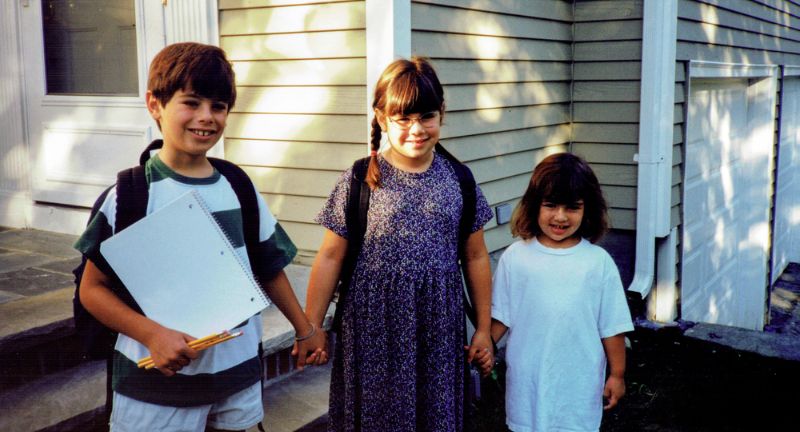REAL ESTATE
15 Reasons Why Baby Boomers Are Refusing to Downsize
Published
4 months agoon

Shutterstock
As baby boomers reach retirement age, many are faced with the decision of whether to downsize their homes or stay put. Despite the practical benefits of moving to a smaller, more manageable space, a significant number of baby boomers are choosing to remain in their large homes. This trend is driven by a variety of factors, ranging from emotional attachment to financial considerations. Understanding these reasons can shed light on the deeper values and priorities that shape their decisions. Let’s explore the key reasons why baby boomers are refusing to give up their large homes.
Emotional Attachment

Shutterstock
Many baby boomers have spent decades in their homes, creating countless memories. The idea of leaving a place filled with sentimental value can be overwhelming and heartbreaking. This emotional attachment often outweighs the practical reasons for downsizing. Their homes are filled with personal milestones, making it hard to imagine living anywhere else.
Family Visits

Shutterstock
Large homes provide ample space for family gatherings. Baby boomers often host their children and grandchildren, enjoying the ability to accommodate everyone comfortably. These family visits are cherished moments that foster strong familial bonds. The thought of downsizing and losing this capacity can be a major deterrent.
Community Ties

Shutterstock
Over the years, baby boomers have built strong relationships with neighbors and become integral parts of their communities. Moving would mean losing these vital social connections. These communities provide a support system and a sense of belonging. Leaving behind these established relationships can be a significant emotional challenge.
Home Improvements

Shutterstock
Many baby boomers have invested significantly in home improvements and customizations. The thought of leaving behind these personal touches and starting over in a new place is unappealing. They have tailored their homes to their specific tastes and needs. Moving to a new home would mean losing these unique features and comforts.
Stability and Comfort

Shutterstock
Their current homes represent stability and comfort. The familiarity of their surroundings brings a sense of security that a new place might not offer. Moving can be stressful and disruptive, especially at an older age. Staying in their current home allows them to maintain their routine and comfort level.
Health and Accessibility

Shutterstock
For those in good health, large homes pose no significant challenge. Moreover, some have made modifications to make their homes more accessible as they age. These adaptations can include things like stairlifts, grab bars, and walk-in showers. Moving to a new home would require re-installing these features, which can be costly and time-consuming.
Real Estate Market

Shutterstock
The real estate market can be unpredictable. Many baby boomers prefer the certainty of staying put rather than navigating the complexities of selling and buying in a volatile market. The process of finding a buyer, negotiating prices, and dealing with potential delays can be daunting. Staying in their current home avoids these uncertainties.
Financial Considerations

Shutterstock
Moving can be expensive. Between real estate fees, moving costs, and potential renovations for a new home, the financial burden can be substantial. Many baby boomers are on fixed incomes and prefer to avoid these additional expenses. Staying in their current home is often the more economical choice.
Investment Value

Shutterstock
Their homes are seen as valuable investments. As property values increase, selling might not be as advantageous as holding on to a property that continues to appreciate. Many baby boomers view their homes as a key part of their financial portfolio. Selling now could mean missing out on potential future gains.
Space for Hobbies

Shutterstock
Large homes offer ample space for hobbies and interests. Whether it’s a craft room, workshop, or garden, these spaces provide joy and fulfillment that might be harder to replicate in a smaller home. Downsizing could mean giving up these beloved activities. Keeping their larger homes allows them to continue enjoying their hobbies without compromise.
Storage Needs

Shutterstock
Over a lifetime, people accumulate belongings. Downsizing would require significant decluttering, which many find daunting. Large homes offer the necessary storage for cherished items and memorabilia. The idea of sorting through decades of possessions is often too overwhelming to consider.
Legacy and Inheritance

Shutterstock
Some baby boomers view their homes as part of their legacy. They intend to pass down the property to their children, seeing it as a valuable inheritance. The idea of selling the home disrupts this plan. Keeping the home ensures it remains in the family for future generations.
Lifestyle and Status

Shutterstock
Owning a large home can be a symbol of success and status. For some, downsizing feels like a step backward and a loss of that status. Their homes are a reflection of their achievements and hard work. Moving to a smaller place might feel like diminishing those accomplishments.
Flexibility

Shutterstock
Large homes provide flexibility for changing needs. Whether it’s accommodating a live-in caregiver in the future or adapting spaces for different purposes, the extra space offers versatility. This flexibility is important as needs and circumstances change with age. Downsizing might limit their ability to adapt their living space as required.
Sentimentality

Shutterstock
Ultimately, sentimentality plays a huge role. The idea of leaving behind a home filled with memories, where they raised their families and spent the best years of their lives, is a significant emotional barrier. These homes are more than just buildings; they are repositories of their life stories. The emotional weight of these memories often outweighs practical considerations.
Conclusion

Shutterstock
The choice of baby boomers to remain in their large homes highlights the importance of emotional and practical factors in their decision-making process. These homes are more than just physical structures; they are repositories of memories, community ties, and personal investments. By understanding these motivations, we gain insight into the values that matter most to this generation. As they continue to age, it will be interesting to see how these preferences evolve. For now, it’s clear that the comfort, stability, and sentimental value of their homes hold significant weight in their lives.
ADVERTISEMENT - CONTINUE BELOW
Related Topics:

About Money+Investing
Money + Investing provides our community with the latest personal and business finance news from around the world. We publish money saving and earning tips to help you make smartier investing decisions. We're inspired by exploring and providing new ways for our audience to achieve financial freedom. We can't wait to share all of our exciting deals, guides and reviews to help you live your financial life to the fullest.
More Money + Investing
-


Top 25 Family-Friendly Cities You’ll Want to Move To
-


25 Crucial Things to Rethink Before Moving to a New…
-


America’s 27 Most Expensive Real Estate ZIP Codes
-


30 Healthiest Places in America to Retire
-


30 U.S. Cities That Offer the Best Value for Working-Class…
-


29 Idyllic Places Retirees Are Flocking to in the US
-


Top Mistakes Homeowners Make When Selling—And How to Avoid Them